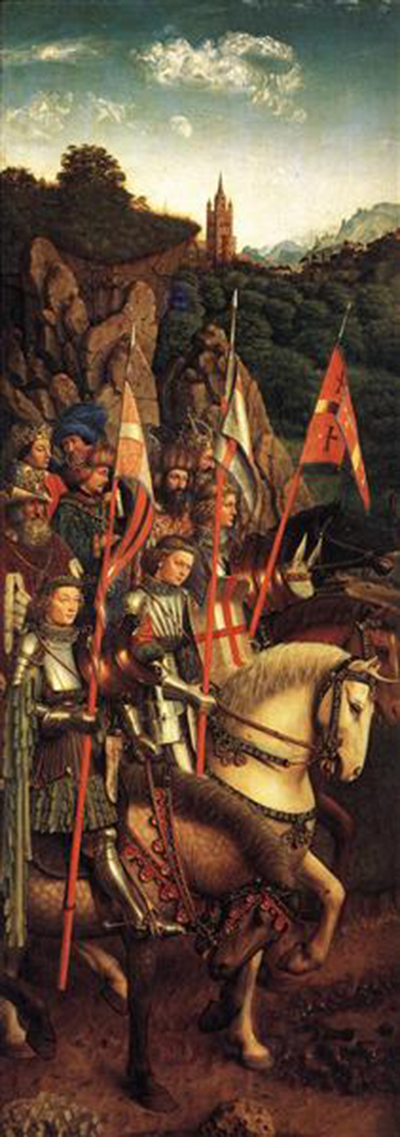The Soldiers of Christ is a beautiful panel painting by Jan van Eyck that sits in the bottom left hand corner of his monumental piece - The Ghent Altarpiece.
Our commentary on the overall altarpiece goes into greater detail about the other elements of this series of panel paintings that together produce one of the highlights of the Northern Renaissance. Whilst artist Van Eyck would probably have called upon assistance from his studio in order to complete elements of this project, it is possible that he actually worked exclusively on this particular panel that captures the soldiers of Christ.
This narrow panel sits alongside another fairly similar composition of a matching dimension with a similar format on the other side of the lower half of this series. In the middle of these four artworks you will find Adoration of the Lamb to complete this row.
This composition places the Just Judges behind the Soldiers with the artist adding great detail to the clothing, armoury and displays with flags being lifted aloft and a small landscape appearing in the background. At this time in the development of art it was very rare to see a painting entirely constructed of a lanscape alone and what you see here is far more common, where a small cityscape or rolling hills provide a background scene to the main focal point of each painting.
Most critical commentary has been carried out on the artwork as a whole, rather than addressing this specific panel by itself. As such, particularly as it is one of the side panels, we do not know as much about it as some of the other areas of the overall piece. That said, much of the content here is linked to Christian scripture and also in line with the work of some other artists from this period, meaning we can fill in some of the blanks to a certain degree.




